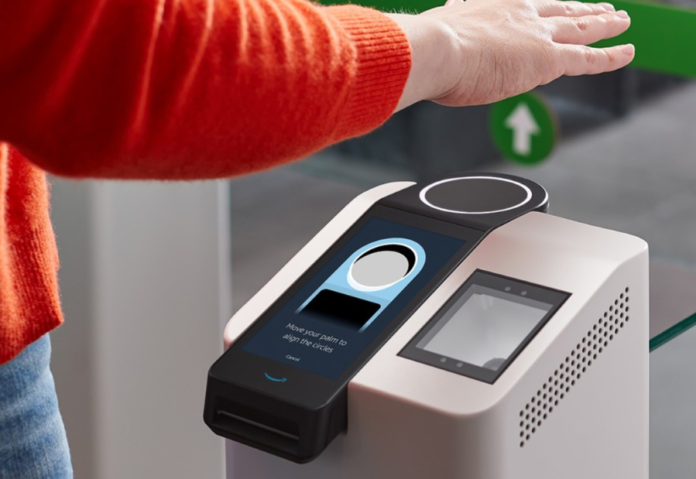Amazon’s palm-scanning service is being marketed by the company as a way for staff members to access sensitive data or enter offices by swiping their hands.
Amazon is introducing a version of its palm-scanning technology intended for the business sector, taking it beyond grocery stores.
Amazon One Enterprise is a rebranded version of the company’s palm-based payment system that enables corporate employees to authenticate themselves and gain access to sensitive data such as financial records or human resources data by simply swiping their hands.
Businesses that have already committed to using the biometric technology include Kone, an escalator and elevator provider; IHG Hotels and Resorts; and Boon Edam, a manufacturer of turnstiles. Pricing for the service, which goes live in preview in the US on Monday, was not made public by Amazon.
Comparing the service to more conventional security and authentication tools like passwords, badges, and fobs, Amazon is marketing it to businesses as a more affordable and secure option.
“In a statement, Dilip Kumar, a vice president in charge of Amazon Web Services Applications, stated that businesses value the privacy and ease that their users enjoy, as they can easily access software assets and physical locations with a simple palm gesture.”
In 2020, the firm launched its biometric payment system. The original idea behind the technology was to allow customers to pay for goods by simply swiping them. It is used in multiple Fresh supermarkets, a few Go convenience stores, and Whole Foods grocery stores. Along with some Panera Bread locations and a few other businesses, sports and entertainment venues have also embraced the technology.
Concerns about security and privacy have led advocacy groups to criticize the service, claiming it increases surveillance. Because you “can’t determine a person’s identity by looking at an image of their palm,” palm recognition, according to Amazon, is more private than other biometric systems. Furthermore, according to the company, purchase data from scans gathered by non-Amazon stores is not captured.
The company is taking a cue from elsewhere by reinventing Amazon One for businesses. Amazon unveiled Astro for Business, a version of its home robot that it bills as a mobile security guard for establishments, earlier this month.
Also read: Value-Based Care Transformation via FHIR
Do Follow: CIO News LinkedIn Account | CIO News Facebook | CIO News Youtube | CIO News Twitter
About us:
CIO News, a proprietary of Mercadeo, produces award-winning content and resources for IT leaders across any industry through print articles and recorded video interviews on topics in the technology sector such as Digital Transformation, Artificial Intelligence (AI), Machine Learning (ML), Cloud, Robotics, Cyber-security, Data, Analytics, SOC, SASE, among other technology topics.






